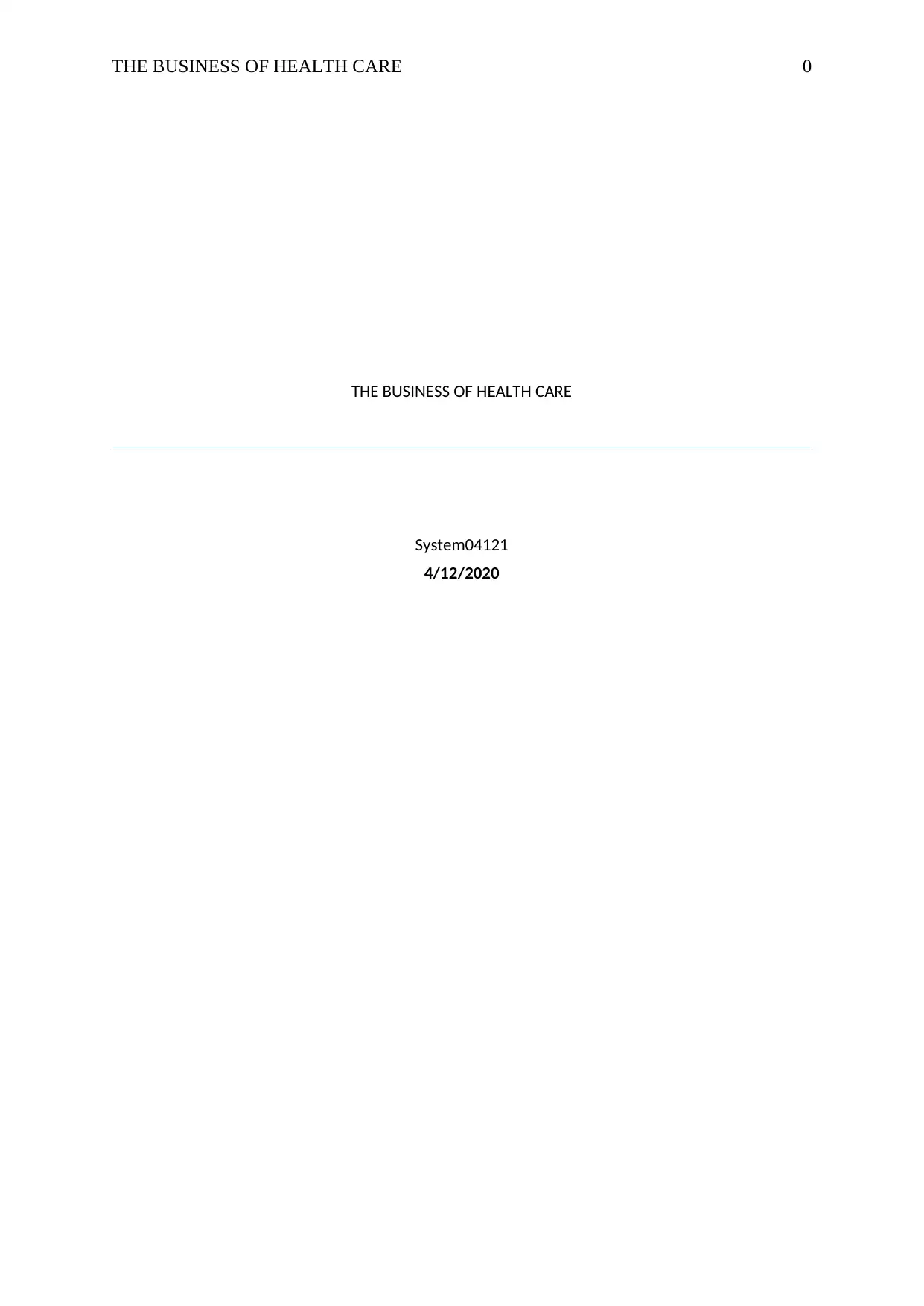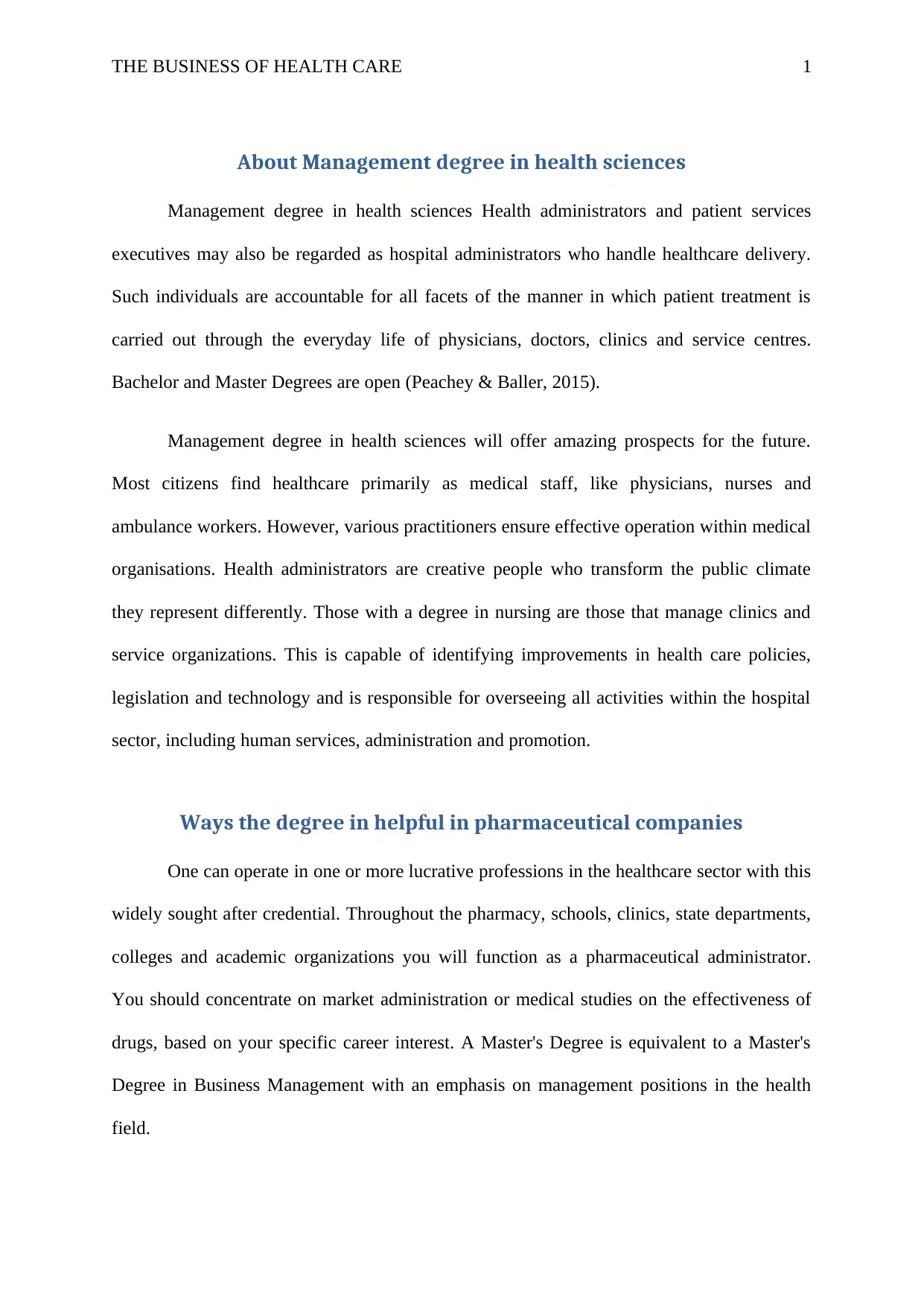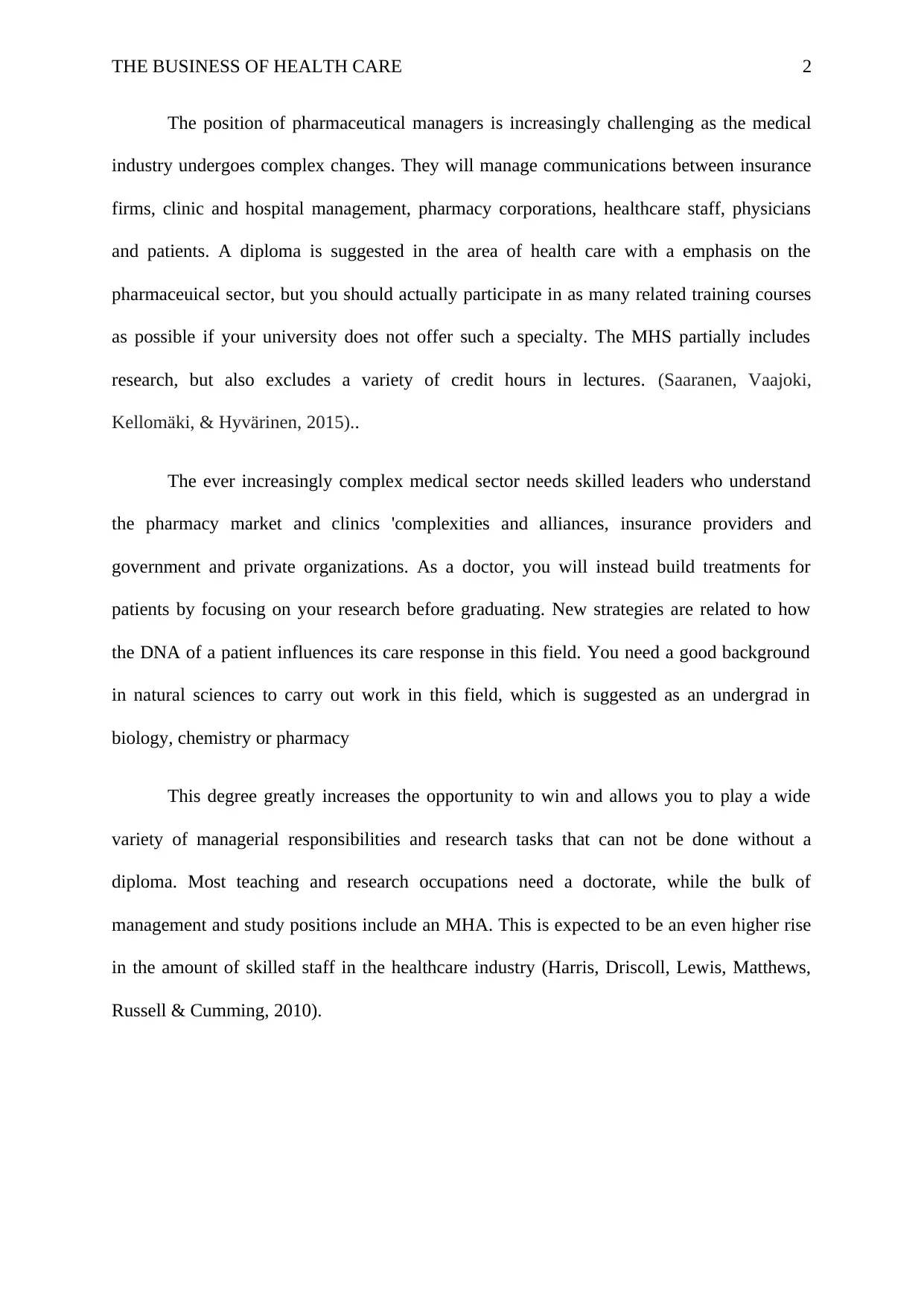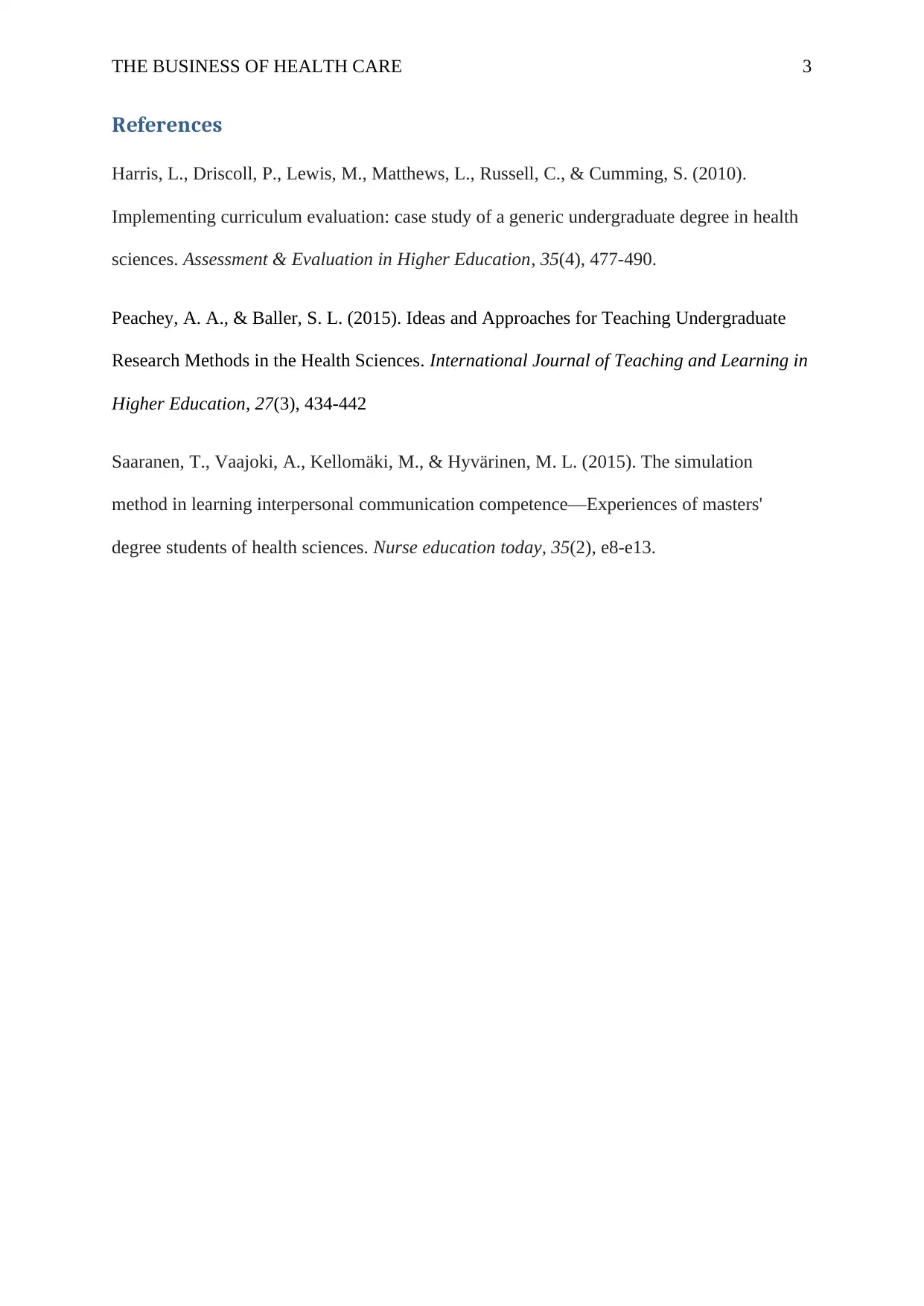The Business of Healthcare: Degree Programs and Career Advancement
VerifiedAdded on 2022/09/23
|4
|737
|21
Report
AI Summary
This report delves into the field of healthcare management, outlining the significance of relevant degrees and their impact on career prospects. It examines the roles of health administrators and patient services executives, emphasizing their responsibilities in healthcare delivery across various settings, including hospitals and clinics. The report highlights the value of Bachelor's and Master's degrees in health sciences, showcasing how these qualifications open doors to diverse opportunities, especially within pharmaceutical companies. It discusses the dynamic nature of the healthcare sector, the need for skilled leaders, and the importance of understanding market complexities, insurance providers, and government organizations. The report also touches on the role of research in healthcare, the importance of a strong background in natural sciences, and the increasing demand for skilled professionals in the industry. References to key research papers are provided to support the information presented.
1 out of 4











![[object Object]](/_next/static/media/star-bottom.7253800d.svg)